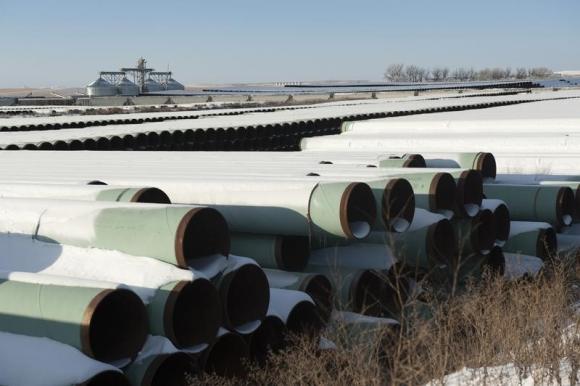
A depot used to store pipes for Transcanada Corp's planned Keystone XL oil pipeline is seen in Gascoyne, North Dakota November 14, 2014. Credit: Reuters/Andrew Cullen
reuters.com - By Jeff Mason and Timothy Gardner - February 24, 2015
(Reuters) - President Barack Obama on Tuesday, as promised, swiftly vetoed a Republican bill approving the Keystone XL oil pipeline, leaving the long-debated project in limbo for another indefinite period.
The U.S. Senate Majority Leader Mitch McConnell, after receiving Obama's veto message, immediately countered by announcing the Republican-led chamber would attempt to override it by March 3.
That is unlikely. Despite their majority, Republicans are four votes short of being able to overturn Obama's veto.
They have vowed to attach language approving the pipeline to a spending bill or other legislation later in the year that the president would find difficult to veto.
(READ COMPLETE ARTICLE)
Recent Comments